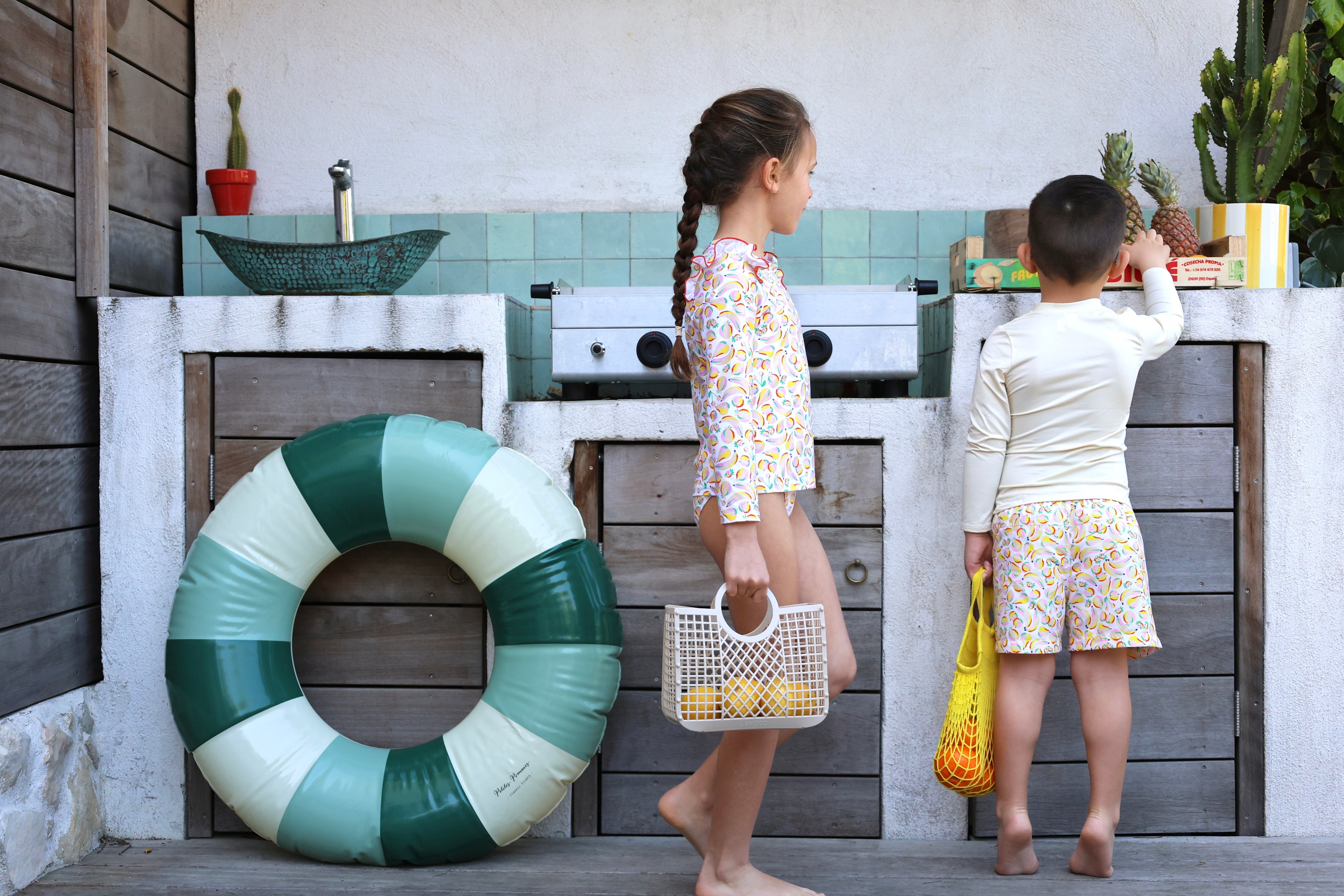Summer is here, the sun is shining, and days at the beach or at the pool are waiting for you. But before you break out your sunglasses and spread out your towel, it's essential to understand how to protect yourself from UV rays . Here are five UV protection secrets that will surprise you and help you have a safe summer.
1. Windows don't block all UV rays

We tend to feel safe behind windows, but the truth is that regular glass blocks UVB rays but lets much of UVA rays through. These rays can penetrate deep into the skin and cause long-term damage. If you spend a lot of time near sunny windows, consider using UV protective films on the windows or wearing UV-protective clothing even indoors. Loumio clothing provides reliable protection even when you're indoors.
2. Sunscreens have an expiration date

Yes, sunscreen expires! Expired sunscreen can lose its effectiveness, leaving your skin vulnerable to UV rays. Always check the expiration date on your sunscreen product and replace it regularly. In general, sunscreen is effective for about three years after it is manufactured, provided it is stored under proper conditions. You can complete your sun routine with anti-UV clothing for maximum protection.
3. UV rays can pass through water

Do you think you are protected from the sun while swimming? Think again. Water can reflect up to 95% of UV rays, increasing your exposure. Additionally, water only blocks about 50% of UV rays at a depth of 50 cm. So make sure to apply water-resistant sunscreen and wear UV-protective clothing even when you're in the water.
4. Foods Can Offer Sun Protection

Certain antioxidant-rich foods can help protect your skin from UV damage from the inside out. For example, tomatoes are rich in lycopene , an antioxidant that can reduce skin redness caused by sun exposure. Likewise, foods rich in vitamins C and E , such as citrus fruits , nuts and seeds , can help boost your resistance to UV damage. Supplement your external sun protection with a diet rich in antioxidants for optimal defense.
### Sources
- “Sun Protective Clothing: Fact vs. Fiction,” Skin Cancer Foundation.
- (https://www.skincancer.org/skin-cancer-prevention/sun-protection/sun-protective-clothing/ )
- “Understanding Sun Protective Clothing”, American Academy of Dermatology ( https://www.aad.org/public/everyday-care/sun-protection/shade-clothing-sunscreen/what-to-wear-protect-skin-from- sun )
- “How Much UV Light Do Windows Block?”, Skin Cancer Foundation ( https://www.skincancer.org/blog/not-all-uv-rays-stay-outside-how-window-film-can-help-protect -you/ )
- “Window Films and UV Protection”, International Window Film Association. ( https://iwfa.com/#:~:text=Window%20films%20block%20up%20to,and%20reduce%20glare%20as%20well .)
- "Sunscreen: How to Help Protect Your Skin from the Sun", US Food and Drug Administration (FDA). ( https://www.fda.gov/drugs/understanding-over-counter-medicines/sunscreen-how-help-protect-your-skin-sun )
- “The Truth About Sunscreen and Water Resistance”, Skin Cancer Foundation. ( https://www.skincancer.org/skin-cancer-prevention/sun-protection/#:~:text=While%20sunscreens%20can't%20claim,Sensitive%20skin .)
- “UV Radiation: How It Affects Your Skin,” American Cancer Society. ( https://www.cancer.org/cancer/risk-prevention/sun-and-uv/uv-radiation.html#:~:text=UVA%20rays%20are%20mainly%20linked,main%20rays%20that% 20cause%20sunburns )
- “Diet and Skin Protection: Foods That Can Help,” American Academy of Dermatology. ( https://www.aad.org/news/diet-and-skin-health )
- "Antioxidants and Skin Protection", National Center for Biotechnology Information (NCBI). ( https://www.ncbi.nlm.nih.gov/pmc/articles/PMC3583891/ )


